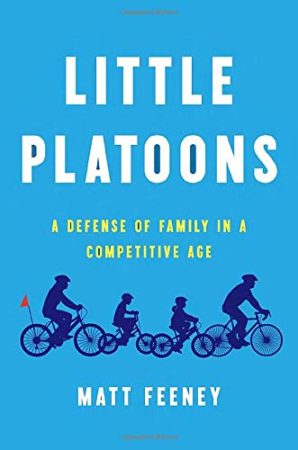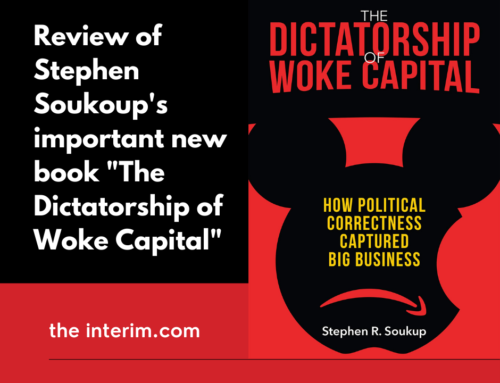Paul Tuns Review:
Little Platoons: A Defense of Family in a Competitive Age by Matt Feeney (Basic Books, $35, 303 pages)
 In Little Platoons, Matt Feeney, a writer whose work has appeared in the New Yorker and National Review, describes how the family – an “irreplaceable zone of human connections” – is under pressure from the hyper-competitive race parents participate in to give their children advantages in life, most notably an upper-hand in getting into better American universities which are the ticket to high-paying jobs and superior status.
In Little Platoons, Matt Feeney, a writer whose work has appeared in the New Yorker and National Review, describes how the family – an “irreplaceable zone of human connections” – is under pressure from the hyper-competitive race parents participate in to give their children advantages in life, most notably an upper-hand in getting into better American universities which are the ticket to high-paying jobs and superior status.
Parents take on larger mortgages to live in neighbourhoods with good schools, sacrifice to send their children to independent schools, and give up their own interests to chauffer children to endless activities. Parents sign their children up for summer camps that will bestow skills that can be used in the future. Interests are curated with an eye to their sons’ and daughters’ future resumes for schools. Children participate in extra-curriculars not out of love for the activity but because they are pushed by parents into them in order to bolster their chances to get into an Ivy League or other elite university.
Feeney also notes that parents try to inculcate the correct ethical positions for their children, not necessarily because they believe those views themselves, but because they are necessary for inclusion among the ruling class and their gatekeeping institutions like universities.
University admissions officers are the clear villain in Feeney’s narrative. They “stoke the competitive fears of applicants and parents” and turn family life into a war of all against all. With so many families participating in the competition for elite universities, universities up the requirements to get in. It is a vicious cycle.
Feeney paints a picture of parents as coldly calculating operators with a single-minded focus on their children’s future at the cost of enjoying the finer things that life offers that might not be resume-worthy. It is tempting to paint these parents as villains, but Feeney has a great deal of sympathy for them. He quotes the historian David Labaree who said that highly successful parents have climbed the educational and occupational hierarchy and “know full well what it takes to make the grade.” Feeney writes that “their competitive adaptation feeds … the fear psychology.”
Time-use studies have shown that mothers since the 1990s – mothers more often than not in the workforce – spend more time than their own mothers did, “guiding and educating their kid.” Thus, Feeney writes, “As we indulge the competitive fear that lives and grows in our world, the inhuman instrumental rules that govern the outside world are colonizing the inner lives of our families, too, changing our very conceptions of what the inner purposes of family life are.” For all the talk about elusive work-life balance, many parents are over-scheduling their family life so there can never be enough time for “the inner purpose” of family; time together is sacrificed in order to ensure the kids are prepared for the college admissions process.
Some critics of a pro-traditional family bent are likely to point to the threat against family life presented by government social policies that disadvantage the two-parent family. Fair enough, but that is not the book Feeney set out to write. He masterfully captures a type of middle-class parent in the United States that is sacrificing family time in favour of activities that improve the future resume of their progeny. But this phenomenon seems to be a particularly American one, and one that afflicts a segment of the middle class that aspires to climb the social ladder. In this, it serves as a warning to Canadian parents, even if there seems to be a more level playing field among Canadian universities compared to the clearly tiered American ones.
The title of the book comes from Edmund Burke’s phrase about the intermediate institutions between the individual and the state. The health of these institutions is vital as a fortification against the overreach of governments; as we rely on institutions of human and humane scale, the state has limits on its demands for conformity and compliance. Foremost among these little platoons is the family.
The failing of Feeney’s book is that he does not offer a compelling vision for what family life outside competition to climb the social ladder looks like. What competing interests might rouse parents other than getting their children into elite institutions? Despite bemoaning the “changing our very conceptions of what the inner purposes of family life are,” he comes up short explaining what constitutes a flourishing family life, and especially the role religion might play. With eyes averred heavenward, for example, even aspirational parents who want their children to climb the educational and occupational ladder, might see that there is more to life than getting into a good university.




